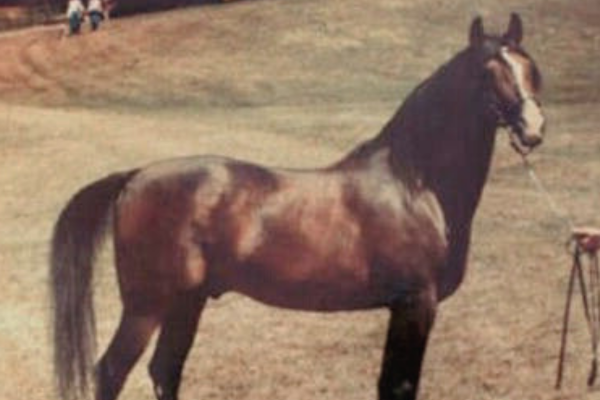The Poney du Logone, hailing from Chad and Cameroon’s Logone River region, is a resilient but small horse breed known by other names: Poney Musey or Poney Mousseye.
A key component of Musey culture, this horse breed serves multiple functions in local life from agriculture to cultural ceremonies – reflecting their deep connection between community members and their environment.
History:
The Poney du Logone’s history can be found woven throughout the cultural tapestry of Marba-Musey people living along the floodplains of the Logone River’s middle reaches in southwestern Chad and northern Cameroon.
Explorers such as Dixon Denham in 1826 and Gustav Nachtigal in 1880 first wrote of its presence and significance for this region, providing insight into its longstanding presence and importance within it.
Remarkably, traditional horse-breeding practices of this area – that fostered the distinctive characteristics of Poney du Logone horses – remained relatively untouched until late in the 20th century.
By mid-80s estimates indicated 6,000 to 6,500 Poney du Logone horses, providing vital services in local communities.
Over time, Poney du Logone fate differed significantly between Chad and Cameroon. By 2007, FAO recognized Chad’s Poney du Logone population as “not at risk”, suggesting its stability and prosperity; by comparison, Cameroon considered their population of fading Poney du Logones verging on extinction.
This contrast emphasizes how important the Poney du Logone is as more than an animal breed – it stands as an embodiment of cultural and environmental change in its native region, reflecting resilience and adaptation, calling attention to preservation efforts that prioritize conscientious preservation measures.
Furthermore, its continued existence serves as a living reminder that human societies exist alongside natural landscapes; protecting this legacy for future generations should remain of equal priority.
Characteristics:
Whilst the Poney du Logone hails from the Logone River region, its unique traits set it apart. For example:
Head Structure: Contrary to some reports, the Poney du Logone boasts an attractive head structure featuring an anatomically correct, slightly convex profile with wide nostrils that enhance its endurance capabilities.
Coat Color Variations: The Poney du Logone’s primary coat color is bay, reflecting its natural habitat in California’s Bay Area. However, other variations like bay roaning, chestnut coloring and chestnut roaning add visual interest and enhance visual appeal of this breed.
Poney du Logone horses are known for their potential tolerance or resistance to trypanosomosis (or “sleeping sickness”), transmitted by tsetse flies.
This disease poses a serious equine health threat in Africa; their resilience under these conditions demonstrates their adaptability and evolutionary fortitude, making them an invaluable breed in areas prone to this condition. They join Bandiagara horses from Mali and Niger who also show exceptional resistance.
This combination of physical characteristics and biological resilience distinguishes the Poney du Logone not only as an attractive breed, but also one with great scientific and practical value.
Their adaptation to demanding environments underscores their symbolic meaning as symbols of survival and harmony with nature.
Temperament:
The Poney du Logone breed hailing from Chad and Cameroon’s diverse terrain boasts an individualistic temperament as distinctive as its breeding location.
Famed for their resilience and adaptability, these ponies show an array of characteristics which make them well suited for various roles within their native communities.
Calm and Steady: The Poney du Logone is known for their calm demeanor. Their steady nature makes them excellent partners in tasks requiring steady presence such as farming or transport, particularly environments that are unpredictable or challenging.
Intelligent and Responsive: Intelligent ponies exhibit strong intelligence that allows them to quickly learn new situations, adapt quickly, and respond positively.
Their eagerness and responsiveness make training and working with these ponies straightforward; handlers appreciate how well these ponies respond to human commands and cues.
Enduring and Hardy: Reflecting their habitat’s challenging conditions, Poney du Logone horses possess remarkable endurance and hardiness. Capable of maintaining activity for extended periods – an essential ability when traversing diverse terrain in the Logone River region.
Friendly and Social: These ponies are beloved members of any community, known for being friendly to humans and other animals alike, making them highly valued members.
Additionally, their friendly disposition makes them popular participants at social and cultural events where they interact harmoniously with people.
Alert and Vigilant: Despite their calm demeanor, Poney du Logone horses possess the capacity for alertness that is essential for survival in the wild and makes them reliable partners in tasks that require watchfulness.

